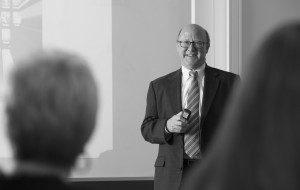U.S. Supreme Court Rules in Favor of Baker in Same-Sex Marriage Wedding Cake Dispute
by David B. Walston, Partner
The U.S. Supreme Court today ruled in favor of a wedding cake baker in a closely watched case where a same-sex couple alleged that the baker had discriminated against them when he refused to prepare a wedding cake for their wedding reception.

By way of background, a baker in Colorado in 2012 refused to prepare a wedding cake for a same-sex couple based on the baker’s religious belief that God’s intention for marriage is the union of one man and one woman. (The baker also refused to sell cakes to non-LGBT patrons for the celebration of same-sex marriages.) However, the baker regularly sold other products to LGBT patrons, and while he declined to create a wedding cake for the couple, he offered to sell the couple any of his other products. The couple filed a charge of discrimination under a Colorado civil rights act:
“It is a discriminatory practice and unlawful for a person, directly or indirectly, to refuse, withhold from, or deny to an individual or a group, because of disability, race, creed, color, sex, sexual orientation, marital status, national origin, or ancestry, the full and equal enjoyment of the goods, services, facilities, privileges, advantages, or accommodations of a place of public accommodation.” Colo. Rev. Stat. §24–34–601(2)(a) (2017)
The baker argued that his decision was an exercise of his constitutional rights of freedom of expression and freedom of religion. The Colorado Civil Rights Commission agreed with the same-sex couple. The baker appealed to the U.S. Supreme Court, which agreed to decide the dispute.
Driven by the press and interest groups, some watchers of the case anticipated a decision addressing whether freedom of religion excused a business from compliance with statutes prohibiting sexual orientation discrimination. The Supreme Court did not deliver the expected. It ruled for the baker, but did not decide the more far-reaching issue.
The Supreme Court found the Commission’s decision a violation of the baker’s constitutional rights because the Commission did not exercise neutrality in weighing the baker’s constitutionally protected religious beliefs against the State of Colorado’s interest in recognizing and protecting the civil rights afforded to designated groups of its citizens. During the proceedings before the Colorado Civil Rights Commission, among other derogatory comments, one commissioner stated on the record:
“I would also like to reiterate what we said in the hearing or the last meeting. Freedom of religion and religion has been used to justify all kinds of discrimination throughout history, whether it be slavery, whether it be the holocaust, whether it be—I mean, we—we can list hundreds of situations where freedom of religion has been used to justify discrimination. And to me it is one of the most despicable pieces of rhetoric that people can use to—to use their religion to hurt others.”
As further evidence of its lack of neutrality, the Supreme Court pointed to other Commission decisions which upheld refusals of other bakers to prepare cakes exhibiting objections to same-sex marriage based on the bakers’ beliefs that such cakes were “offensive.” The Supreme Court chastised the Commission:
To describe a man’s faith as “one of the most despicable pieces of rhetoric that people can use” is to disparage his religion in at least two distinct ways: by describing it as despicable, and also by characterizing it as merely rhetorical — something insubstantial and even insincere. The commissioner even went so far as to compare Phillips’ invocation of his sincerely held religious beliefs to defenses of slavery and the Holocaust. This sentiment is inappropriate for a Commission charged with the solemn responsibility of fair and neutral enforcement of Colorado’s anti-discrimination law — a law that protects discrimination on the basis of religion as well as sexual orientation.
The Supreme Court handed the baker himself a victory. It did not hand the religious or conservative communities a victory, or the LGBT or liberal communities with a loss.
This case did not involve employment discrimination, but would have provided guidance regarding how the Supreme Court might address the issue in the employment context. However, the Court did not address this larger question – whether the constitutional right to freedom of religion allows a business to discriminate on the basis of an employee’s sexual orientation. That decision remains undetermined – another case for another day.
